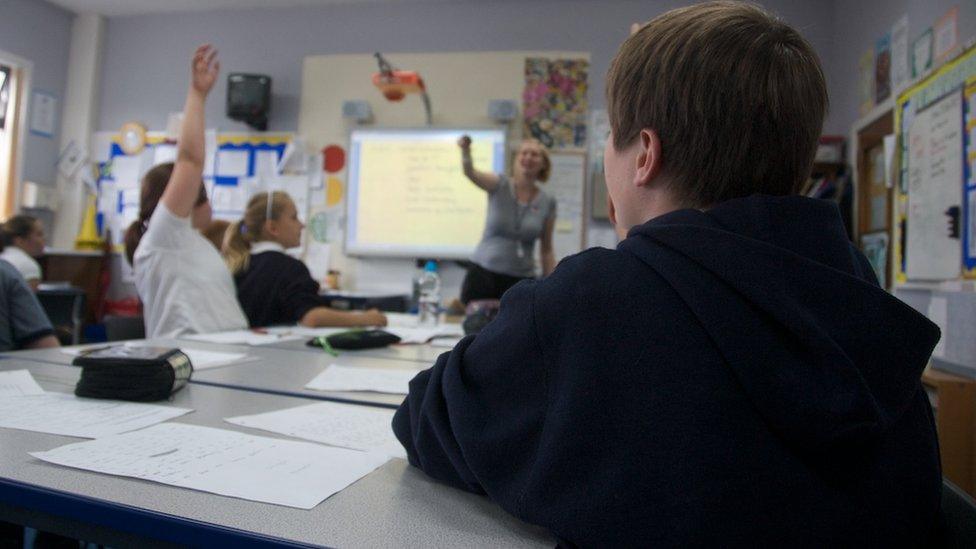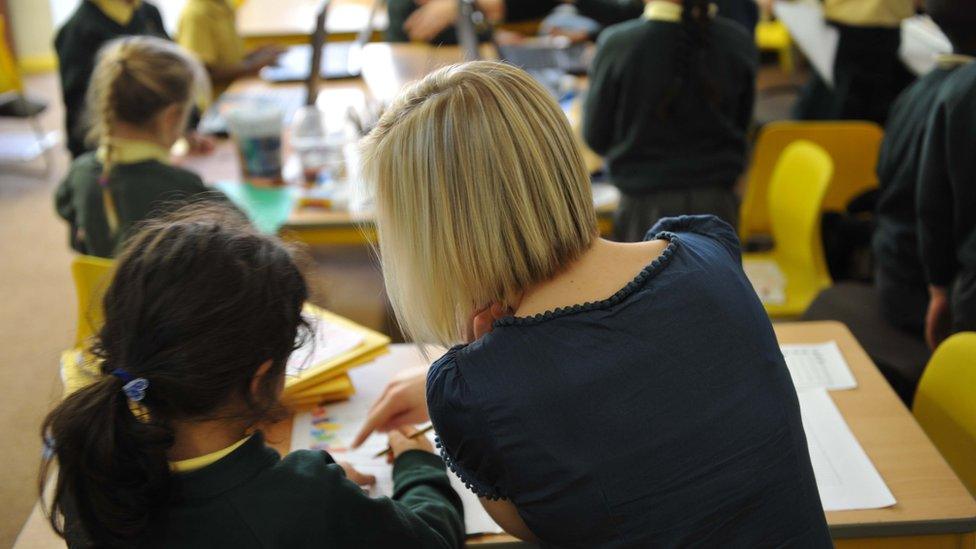Union urges teachers to turn down 'divisive' pay offer
- Published

The EIS will open the ballot at the end of the month
Scotland's largest teaching union is urging its members to turn down a pay offer which it describes as "divisive".
The EIS will open a ballot to reject the deal and warns a vote on industrial action could be next.
Teachers unions are campaigning for a 10% pay rise but talks with the Scottish government and councils broke down last week.
The headline deal on offer is worth 3% but employers argue many teachers would actually get a rise of at least 5%.
'Extremely angry'
The ballot paper, which will be sent out at the end of the month, will say: "Do you wish to accept or reject the terms of the Employers' Side offer dated 6 September 2018. The Salaries Committee recommends that you reject the offer."
It adds: "In the event of a rejection the EIS will seek further negotiations within the SNCT. Should those negotiations fail, it is likely that an indicative ballot on industrial action will be held."
The ballot will open on 29 October - two days after a national rally on pay being organised by the union.
General secretary Larry Flanagan said: "An extremely angry EIS Salaries Committee has today taken the decision to open a consultative ballot of our members on the pay offer from the Scottish Government and Cosla.
"EIS Negotiators are very clear that this reheated offer, which has previously been rejected by all of the teaching unions on the Scottish Negotiating Committee for Teachers, is divisive and continues to undervalue teachers.
"The EIS is strongly recommending to our members that they send a very clear message by voting overwhelmingly to reject this offer."
'Unaffordable'
While the prospects of industrial action would appear to be increasing it is still some way off.
Before a strike could take place, at least 50% of eligible members would need to vote in a legally-binding ballot.
A simple majority in favour of action would be insufficient as at least 40% of those entitled to vote would need to back action.
The EIS still hopes industrial action can be avoided.
When the talks broke down last week council body Cosla's resources spokeswoman, Councillor Gail Macgregor, said the offer was the best which they could afford.
She added: "At a time when the resources available to councils continue to reduce, we have dug deep to put an offer of 3% on the table for the entire local government workforce at a cost of £350m.
"This offer matches or betters other offers in the public sector in Scotland, so to say I'm disappointed that it has been rejected is an understatement.
"The Teachers Unions claim for 10% in a single year cannot be achieved and is entirely unaffordable and they have been told this since the offer was submitted at the start of the year."
Strike action
Education secretary John Swinney argues the offer would result in all teachers on the main grade scale receiving at least a 5% increase, with some teachers receiving up to 11% in one year in conjunction with annual progression.
He says this matches or betters other offers in the public sector in Scotland.
The EIS argues teachers have seen their take-home pay reduced, in real-terms, by around 24% over the past decade.
While some in councils and the Scottish government may be personally sympathetic to some of the arguments made by the teachers unions for a large rise, their concerns would include whether a 10% rise was affordable and whether it would set a precedent for other public sector workers.
The SSTA union is planning a consultative survey of members and strongly recommending rejecting the offer. The survey will also assessing the preparedness of members to take strike action.
The NASUWT says it is putting information out to members on the pay offer and asking for their opinions on the offer via a survey. The responses it gets will then inform its next steps.
- Published11 October 2018

- Published4 October 2018
